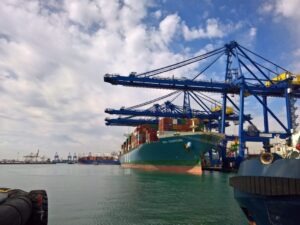A new US legislation has proposed amendments that could potentially hinder vessel sharing as stated in the Shipping Act, according to a warning issued by the World Shipping Council (WSC).
The WSC claimed that the Shipping Act established rules that enabled legal certainty for ocean carriers to share space on ships. This, in turn, allows more carriers to compete on a route, offering more frequent sailings and serving more ports.
From a customer perspective, this means lower costs, better service and reduced transport emissions as noted by the Council.
The WSC is concerned that the new legislation, H.R. 1696, could remove the vessel sharing system, undermining competitiveness and choice for liner shipping services.
READ: WSC launches programme to safeguard container loss at sea
Vessel Sharing Arrangements (VSAs) are purely operational agreements, reported the Council, that allow carriers to share space on each other’s ships, reducing the cost of transport and encouraging frequent sailings and service to more ports.
“Nobody has offered a reason why we should throw away such a useful tool as vessel sharing arrangements (VSAs), and I think some of the rhetoric comes from a misunderstanding about how VSAs help the supply chain work better,” commented John Butler, President and CEO of the WSC.
READ: FMC mandates new criteria for carriers’ refunds
The WSC added that during the pandemic, inland congestion reduced available ocean capacity by preventing ships from making port and, as a result, freight rates surged.
However, as high import volumes and inland congestion have faded, freight rates have fallen back to pre-pandemic levels, and reliability has returned to normal noted the Council.
In October of last year, the European Commission (EC) was mulling a review to the Consortia Block Exemption Regulation (CBER) regulating vessel sharing, a move that prompted furious reactions across carriers and shippers.









